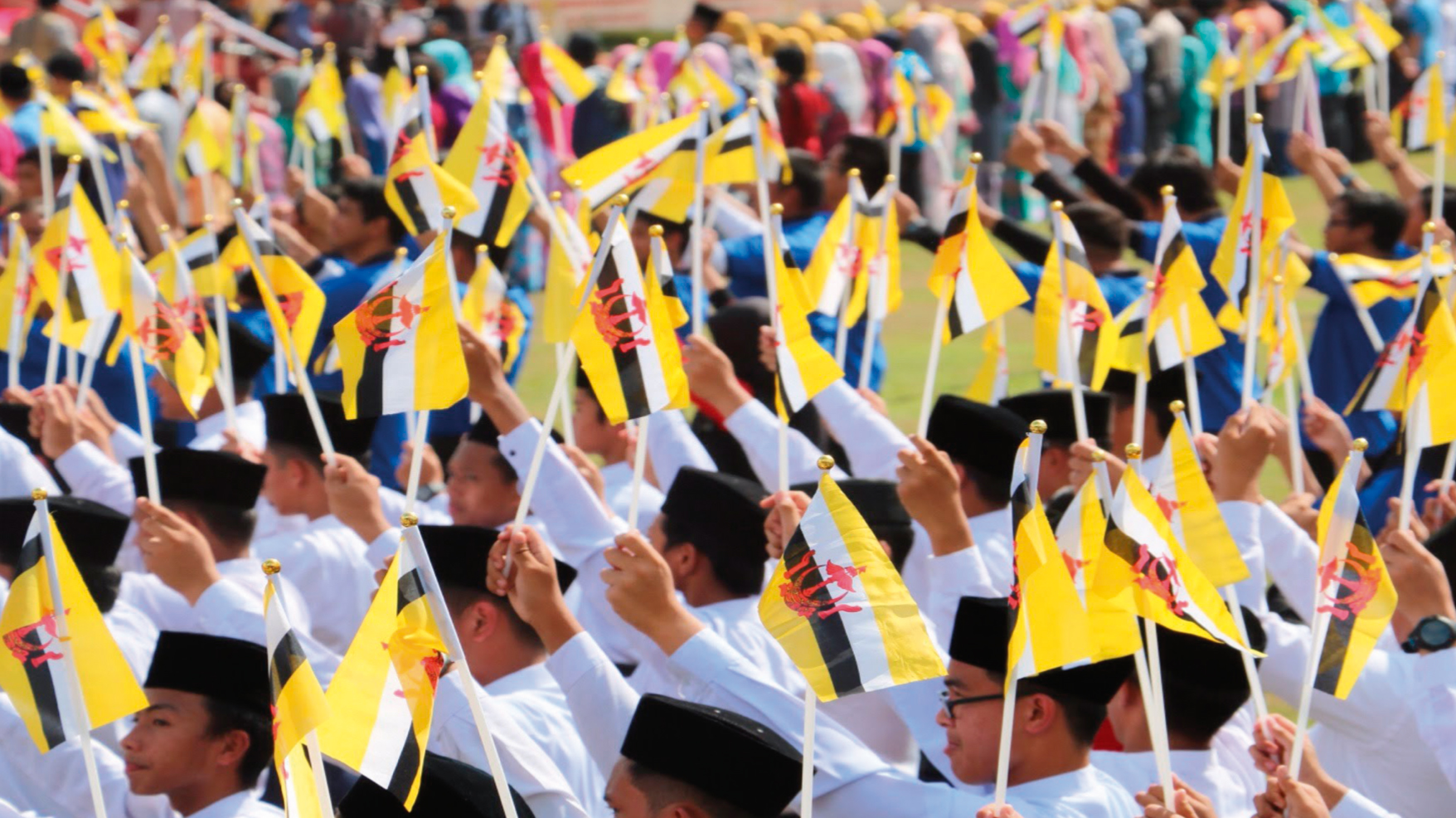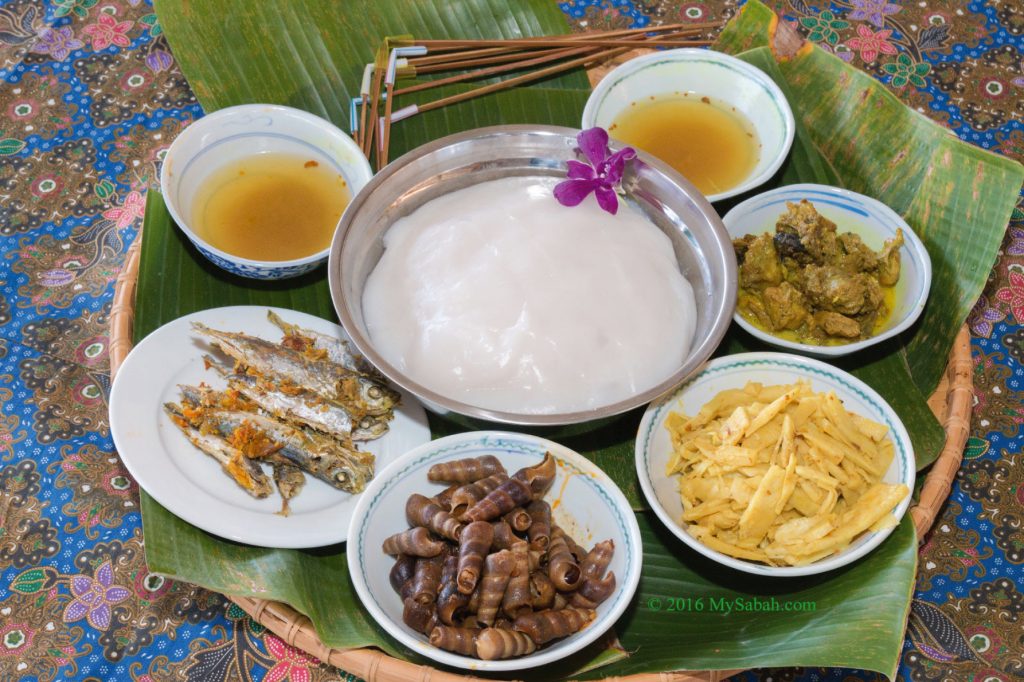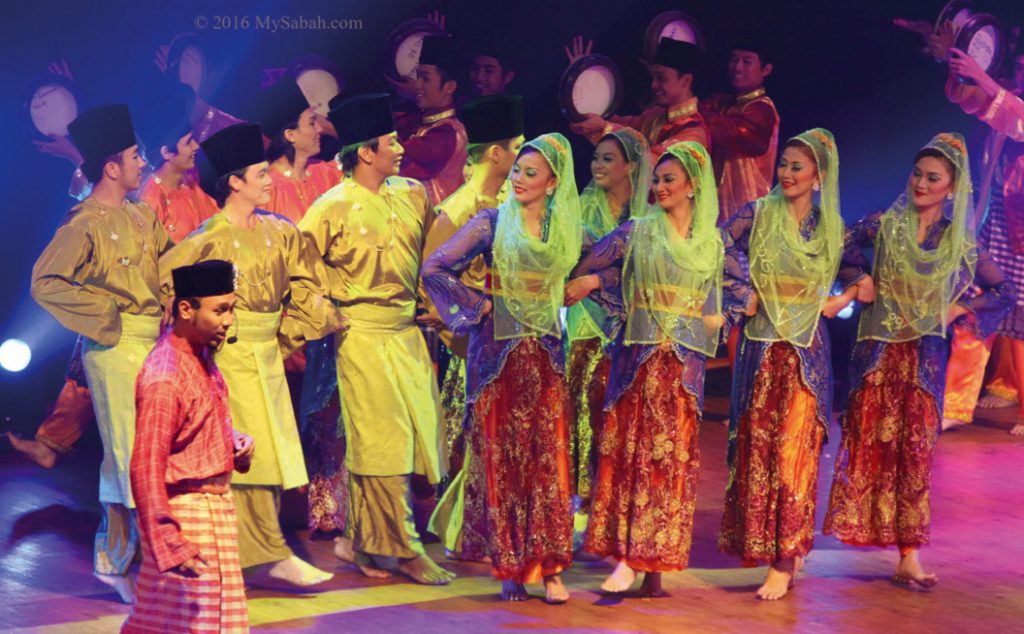The Bruneian Culture
The Bruneian Identity.
In the proclamation of independence, His Majesty the Sultan and Yang Di-Pertuan of Brunei Darussalam promulgated that Brunei Darussalam will forever be a Malay Islamic Sultanate (Melayu Islam Beraja – MIB), adhering to the teachings of Islam under the Ahli Sunnah Wal.
There are three prongs to the National Ideology that is honoured and practised by all Bruneians. The MIB is seen as “a concept which upholds Islamic principles and values based on the Quran and hadith as the basis of all activities concerning the racial necessity, language, Malay culture and the monarch institution, as the governing system and administration of Brunei Darussalam. The concept of national ideology as evidence of the scientific and cultural evolution of Bruneian ontology in a modern Malay Islamic Sultanate. The Malays of Brunei comprise seven ethnic groups comprising of the Belait, Bisaya, Brunei, Dusun, Kedayan, Murut and Tutong; and collectively these groups are referred to as the Malays of Brunei, as stated in the Constitution of Brunei Darussalam in 1959, Section 82a(ii). The upholding of the national ideology is marked by the usage of malay as the national language in communication. Section 82a (ii) clearly states that “the rights of the Bruneians are to guard the name and honour of the malay language from invasion, to secure the language as one of the components of national identity, to the highest level”. The Malay in national ideology was most interesting, since it emphasises not Brunei’s national uniqueness or its Bornean heritage, but its membership in a supranational culture. Therefore, Malay is central to the ownership, culture and life of Brunei, and the inherited Malay values, customs and culture are the dominant heritage.
The next pillar in the national ideology is Islam. As His Majesty the Sultan proclaimed that the Islam that Brunei practises is the Ahli Sunnah Wal Jamaah which upholds Islamic principles and values based on the Quran and Hadith (the words of Prophet Muhammad) as the basis of all activities. This is also highlighted in the Constitution, Part II, section 3(1), that the official religion for Brunei is Islam, according to the Shafeite sect.
The third pillar is the monarchy system of government. The monarchy has been in place since the early 15th Century. This monarchical system defines the legislature where the codification and implementation of the Adat (Customary law)), and its role as a Pusaka (heirlooms to the ancestors) takes place. The role of the Sultan is prominent as a guardian and defender of the Adat, Pusaka and. The Bruneian identity is also shaped by the customs and culture brought by the nobles in the Royal Courts.

Traditional Knowledge in Brunei Darussalam
Traditional Knowledge (TK) is a long-standing traditions and practices of certain indigenous, regional and local communities. It is sometimes referred to as Indigenous Knowledge (IK), Traditional Environmental Knowledge (TEK) and Local Knowledge.
Brunei Darussalam has been practicing TK in the seven ethnic Malays. The arts, traditional medicine, culture, practice, cuisine, traditional motives, literature, and other forms of TK were passed on through stories, legends, folklores, rituals, songs and customs. The role of the Adat and Pusaka is very vital in maintaining the TK of the Brunei Malays. The unwritten legislature where the codification and implementation of the Adat (Customary law) and its role as a Pusaka (heirlooms to the ancestors) takes place in all aspects of the society.
Such examples of TK include;
- Babarut, Bebadung and Bechakok – The art of healing abdominal pain in children through the use of betel leaves (Sirih), acreca palm (Pinang), Gambier (Gambir) and Kapur; and wrapping the child’s abdomen with a piece of cloth.
- The preparation of Ambuyat – The delicate preparation of the Ambuyat was passed on through practical knowledge and stories from the elderly.
- Memburis Perahu – Long before modern technology in boat making and the era of fibre- glass was introduced, the traditional making of the boats in Kampong Air were left to mastercraftsmen using limited tools but yet, creatively done to produce boats of different shapes, sizes and uses.
- Mengangun – The preparation of the bride and groom before marriage includes different procedures in a structured system of the Adat. Only certain elderly with adequate knowledge and preparation can carry out the job of the Pengangun.
As there is no proper documentation of the TK, the issue of protection of such knowledge has been of a great concern by states and governments and was discussed regionally and internationally. The World Intellectual Property Organisation (WIPO) outlined and compiled some examples of special laws and measures which specifically protect traditional knowledge, sometimes referred to as sui generis laws; patent laws which provide protection of a sui generis nature for traditional knowledge; and laws and measures which establish regulatory frameworks for traditional knowledge that have an effect on, or relate to, intellectual property-type protection (www.wipo. int). A range of sui generis laws that protect TK includes Constitutional Law, Special/Specific Laws and Legislative Measures, Patent Laws and Regulatory Framework for TK.
In Brunei Darussalam, various government agencies and institutions has been working hand-in-hand to protect TK. Ministry of Education, through SPN21 has highlighted the importance of TK in the subjects of Melayu Islam Beraja (MIB); Social Studies; and Business, Art and Technology (BAT) in the curriculum. The Ministry of Culture, Youth and Sports through the Culture and the Arts Section is working on an inventory of arts, culture and
TK, in line with the UNESCO’s Conventions on the Protection of World Heritage, Cultural Heritage and Intangible Cultural Heritage. The Museums Department and the Brunei History Centre has been doing anthropological and archaeological studies on the TK. So do Universiti Brunei Darussalam and other government agencies. The Attorney General Chambers (AGC) has been actively involved in the protection of Intellectual Properties through Brunei Darussalam’s Emergency (Copyright) Order, 1999. The Brunei Economic Development Board established the Patents Registry Office early this year.
Thanks to our partners, you can find ties online to suit every preference and budget, from budget to top-of-the-range super stylish models.
As much as the nation put on place legislations, institutions and government agencies to protect TK, it is up to us, the pride of the nation
and the people of this peace and prosperous country of Brunei Darussalam to carry on protecting our TK through constant usage of these knowledge and include every aspects of the TK in our lives through living culture.

Safeguarding Intangible Cultural Heritage in Brunei Darussalam.
Brunei Darussalam has been practicing ICH in the seven ethnic Malays. The arts, traditional medicine, culture, practice, cuisine, traditional motives, literature, and other forms of ICH were passed on through stories, legends, folklores, rituals, songs and customs. The role of the Adat and Pusaka is very vital in maintaining the ICH of the Brunei Malays.
The unwritten legislature where the codification and implementation of the Adat (Customary law) and its role as a Pusaka (heirlooms to the ancestors) takes place in all aspects of the society.
In Brunei Darussalam, various government agencies and institutions has been working hand-in-hand to protect ICH. Ministry of Education, through SPN21 has highlighted the importance of ICH in the subjects of Melayu Islam Beraja (MIB); Social Studies; and Business, Art and Technology (BAT) in the curriculum. The Ministry of Culture, Youth and Sports through the Culture and the Arts Section is working on an inventory of arts, culture and ICH, in line with the UNESCO’s. The Museums Department and the Brunei History Centre has been doing anthropological and archaeological studies on the ICH. So do Universiti Brunei Darussalam and other government agencies. The Attorney General Chambers (AGC) has been actively involved in the protection of Intellectual Properties through Brunei Darussalam’s Emergency (Copyright) Order, 1999. The Brunei Economic Development Board established the Patents Registry Office early this year.

Brunei Museums Department was established in 1965 whose purpose was to manage the richly endowed and diversified cultural properties. The department has expanded tremendously and embarked on a multi-disciplinary and a holistic approach in collection, preservation, execution of research and disclosure of both the tangible and intangible cultural heritage.
In 1984 Brunei Darussalam gained its independence. That year also witnessed the setting up of Ministries and Departments, which include the Ministry of Culture, Youth and Sports. In 1985, the Culture and the Arts Section of the Ministry of Culture, Youth and Sports was established. One of the main tasks of the section was to oversee culture and heritage and protect them.
Four National Acts were adopted, that is the Antiquities and Treasures Trove Enactment in 1967 (amended in 1984 and 1991); the Preservation of Books Enactment in 1967 (amended in 1984); the Brunei Darussalam National archives Enactment in 1975 (updated in 1983); the Wildlife Protection Act in 1978 (updated in 1984). Under these acts, the respective responsible agencies are required to protect, preserve and promote as well as document the country’s properties by publishing and producing materials such as books, photographs, video, film and audio-tapes which shall be stored at National Archives of Brunei Darussalam.
As much as the nation put on place legislations, institutions and government agencies to protect ICH, it is up to us, the pride of the nation and the people of this peace and prosperous country of Brunei Darussalam to carry on protecting their ICH through constant usage of these knowledge and include every aspects of the ICH in their lives through living culture.
In conclusion, the Bruneian Culture is defined as civilization, values and personalities governed by the national ideology of the MIB.
